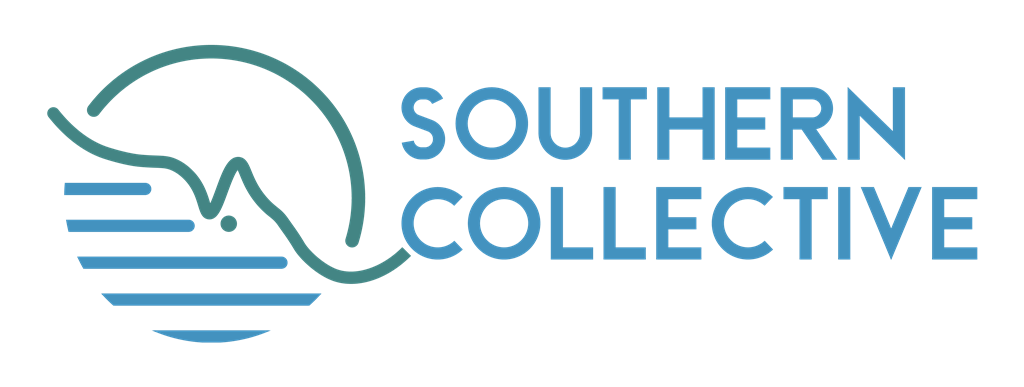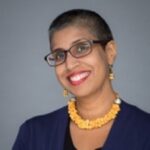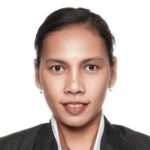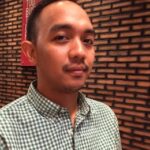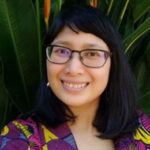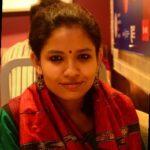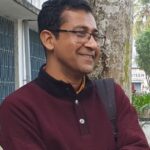Connected Ethnographies
In the thick of pandemic immobility, many of us found ourselves locked down in different continents. Some of us members of our newly formed Southern Collective, who work on environmental justice amongst coastal communities, came together to try to overcome the impact of ‘motionlessness’ in our research lives. The pandemic had not just caused immobility but also brought down an unsettling fog of silence; there was no (and in many cases still is no) way of knowing what was really happening in many “field” and “sea” sites.
How does one conduct “immobile” research while giving shape to more shared ways of co-producing knowledge in this vastly connected expanse of the Indian Ocean? We have invited multiple authors from across the Indian Ocean to contribute essays on this subject which are currently in preparation. The authors will use the power of networks and collaboration to continue producing stories from the field. Through each of their collaborations we hope to find an opportunity to extend what counts as “ethnography”, why in the gridlocked age of the pandemic, ethnographic writing is important (especially as it enables conversation in these “immobile” times), generative (offers us a range of synergistic cognitive expressions), as well as deeply shared (between committed ethnographer, generous and cooperative partner).
The essays in this collection will cover reflections on gender and the use of social media, on resilience among coastal communities, on schooling without connectivity, on remote media and art collaborations. Together, they can push the theoretical boundaries of what constitutes knowledge and technique in conducting connected ethnography.
Migration Diaries
Indian Ocean Ethnographies
Resources
A Collaboratory Of
Indian Ocean Ethnographies
Series Editors:
Annu Jalais, Assistant Professor, National University of Singapore (NUS), Singapore and
Aarthi Sridhar, Programme Head, Dakshin Foundation, Bengaluru, India and PhD candidate, University of Amsterdam, The Netherlands.
Abstracts
Writing proposals and dreaming fieldwork during Lockdown
Author:

Aarthi Sridhar (Programme Head, Dakshin Foundation and PhD candidate, University of Amsterdam, The Netherlands)
Abstract:
India’s COVID-related lockdowns lasted around seven months and affected many sectors. This paper examines the practice of writing collaborative grant proposals during lockdown. It asks whether these practices affected social scientists and practitioners for whom grant writing is part and parcel of being able to do field work. It reflects on the ways in which the pandemic facilitates the imaginative labor, central to proposal writing.
Opto-haptic fieldwork encounters in pandemic Southeast Asia
Authors:
Abstract:
Drawing inspiration from auto-ethnographic approaches, we explore how meanings of social “containment” intersect with bodily and sensory encounters of doing/living ethnographic “fieldwork” during the early days of the coronavirus pandemic in Singapore and Jakarta. Much has been written on the necessity of interpersonal social warmth in enriching any kind of fieldwork. Yet, what of moments in which calculated compartmentalizing and non-movement (as opposed to immobility) become the very prerogative in mediating such field encounters?
Remoteness and Ethnography: Island stories from the Arabian Sea
Author:

Lakshmi Pradeep (PhD candidate, National University of Singapore, Singapore)
Abstract:
How does “connected ethnography” look in the Indian Ocean archipelago? I describe the experiences of isolation in the Lakshadweep Islands during the pandemic related lockdown. By attempting to draw metaphors from the islands’ history of navigation, the paper argues that collaboration becomes key to surviving pandemic isolation. These field-derived insights lead to co-created ethnography which overcomes and challenges a treatment of island ethnographic practice as necessarily “remote” in nature.
Looking for clues: COVID-19 and “Facebook fieldwork” with cross-border Burmese migrants
Authors:
Abstract:
The pandemic paused ethnographic research. In April 2020, Thailand’s lockdown limited the flow of border crossing between Myanmar and Thailand and we were not allowed to conduct ethnographic fieldwork. Millions of Burmese migrant workers risked losing their jobs and lives and online communication became an important means for workers to exchange information and cope with the new uncertainties. We reflect on how Facebook’s public groups helped us ethnographers understand responses to the pandemic amongst migrants.
From records to lively communities: Seeing virtual Southeast Asian urban farming groups in a new light
Author:

Marvin Joseph F. Montefrio (Assistant Professor, Yale-NUS College, Singapore)
Abstract:
While the COVID-19 pandemic made qualitative ground investigations of urban farming difficult, it opened up prospective “sites” for ethnographic research. In the last nine months, lockdowns in Southeast Asia have made social media communities vibrant virtual spaces of knowledge sharing, commiseration, and politics on urban food issues. I reflect on the opportunities, challenges, and ethics of doing digital ethnography, drawing from my experience of observing Facebook urban farming community groups in the Philippines and Singapore.
Building online bridges: ethnography across “partitioned” nation-states during COVID-19
Author:
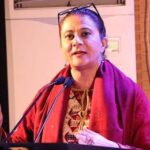
Nukhbah Taj Langah (Associate Professor, Department of English, Forman Christian College University, Lahore, Pakistan)
While COVID-19 restricted field research for our oral history project on women and education in Pakistan, I began to regard online connectivity as ethnography. Here was a way of resisting conventional research methodologies constraining literary researchers and political borders that limit field research across a broader and historically “partitioned” South Asian geography. This essay reflects on attempts to bridge the so-called “partitioned” nations of Pakistan, India and Bangladesh through academic channels and online discourses.
Remote or unreachable? Bengali Matua community, the gender of connectivity, and the challenges of pandemic fieldwork
Authors:
Abstract:
We reflect on the gendered dilemmas of doing remote ethnography with Dalit members of the Matua religious community in West Bengal, southern Bangladesh and the Andaman Islands. Digital ethnography relies upon media that privilege male voices and their sensory onto-epistemology. The use of phone interviews as discussed by global North researchers underestimates technological divides exacerbated by gender inequalities in other contexts. Our pandemic fieldwork modalities illustrate power dynamics inherent in access to phone connectivity.
‘Remote’ ethnography during a pandemic: Frictions and challenges of translating intimacies
Author:

Miriam Jaehn (PhD candidate, National University of Singapore, Singapore)
Abstract:
When the pandemic erupted, I suddenly found myself in locked-down Nepal, cut off from the Rohingya communities I was working with for my doctoral dissertation. I received emails from my institution asking me to “reimagine fieldwork” in new ways and to “rethink ethnography” as something beyond “being in the field”. I understood that I had to translate the intimate relations built offline, online. I highlight here the challenges and frictions that such translations necessitated.
Oral history during COVID-19: Virtual ethnography and the digital divide in Bangladesh
Author:

Moyukh Mahtab (Graduate student, BRAC University, Dhaka, Bangladesh and Member, Nijera Kori, Bangladesh)
Abstract:
I was just starting my Master’s thesis research when COVID-19 erupted. I was to document the narratives of villagers whose protests soon became a mass movement against the expansion of commercial shrimp aquaculture in 1990, in Khulna, Bangladesh. Faced with the choice of either postponing my study or redesigning it, I finally settled for interviews over the phone. This article looks at the challenges of that process and the ethical questions it raised.
Of islands, getting stranded and fishing for interviews in pandemic times
Authors:
Abstract:
This essay traces the effect of the pandemic on a long-term participatory fisheries governance intervention in India’s Lakshadweep Islands. Years of regular field presence and local support were suddenly replaced by stranded researchers, lost opportunities and weaning grassroots momentum, disrupting team morale and heightening difficult negotiations with donors vis-a-vis “targets”. All the challenges of working on remote islands were intensely amplified, underscoring the need for greater investment in locally-driven interventions in the future.
Fishing nets and social networks of the analog kind
Authors:
Abstract:
The pandemic made it important to think of new ways to do fieldwork. This proved to be particularly difficult in India due to the digital divide based on gender, class, caste, and geography. This paper is a reflection on the challenges, dilemmas, and rewards of doing remote ethnography by drawing parallels between women using their social networks to restore livelihoods and the authors using care networks to connect with women and document their pandemic experiences.
Truant teachers, “barefoot” tutors and the breakdown of schooling in pandemic Sundarbans
Authors:
Abstract:
The lockdown had a negative impact on schooling in rural India. Even though the government ordered that the dissemination of education be continued through the internet, television or radio, this was not possible in the Sundarbans, a region that has intermittent electricity and connectivity. This piece reflects on the effects of (a) urban teacher truancy, (b) the mushrooming of local “barefoot” private tutors, and (c) the suggestion that henceforth the Government recruits local school teachers.
Resources
Coming Soon
